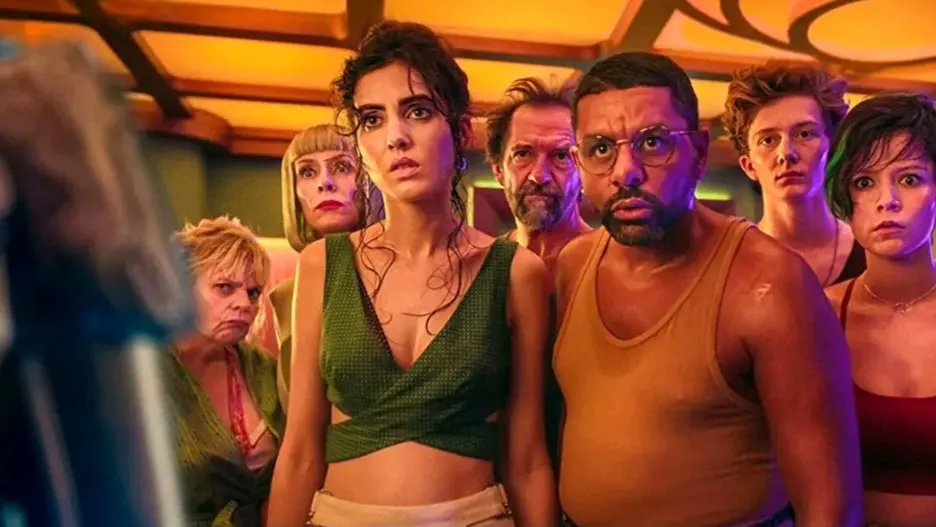Summary
Netflix’s oddball film Bigbug is bonkers, for better or worse. Probably worse.
There was a reason Netflix wouldn’t screen Jean-Pierre Jeunet’s farcical science-fiction comedy, Big Bug. The streaming giant doesn’t necessarily bring in esteemed directors not to screen their most significant investments for critics.
The film is so overwhelmed with the weight of its ego the story collapses quickly into its second act. I have talked about “mirror” characters lately. Multiple films this week have them in the romance genre for some reason.
Set in 2045, Jeunet tries to satire human behavior regarding technology and the pandemic. He does this by using the story cliche of having characters so aching to be human and be loved. They mimic human responses by exposing their actual behaviors.
My response to that is, so what? It is a clever idea, though is it creative if it has been done before? Jeunet’s now coats the story with blissful colors, futuristic settings, and eye-popping visuals.
Here, we have the middle-aged Max, who is so desperate for an afternoon delight at Alice’s home that he is forced to bring his teenage son. (Are malls a thing of the past in 2045 France?) Max is further blocked from his goal when Alice’s ex-husband Victor and his very young girlfriend Jennifer drop off their daughter Nina early.
And after their nosey neighbor, Francoise comes walking in. Then, Alice’s artificial intelligence help, led by the head robot Monique, traps them inside. Why? Because of an upcoming robot invasion led by the evil AI called Vonyx.
They want to enslave all humans and rule the world, looking as if they are ripped from the ones that queue in the film Dark City. The longer they are stuck in lockdown, the more the humans begin to become empathetic, and their robots begin to understand human behavior.
You can appreciate what Jeunet and co-writer Guillaume Laurant were trying to accomplish and make it palpable for mainstream audiences. Jeune wants his film to explore various personality types of basic human behavior (for example, the optimistic, pessimistic, trusting, and envious).
Thus, it examines their capacity-limited physical, social, and mental activity. All this is happening while we are glued to our phones and kept at arm’s length because of the pandemic. The need for human touch and interaction has never been so critical.
However, the script is too focused on physical gratification through sexual desire. In turn, it fails to explore aspects of mental health and the human condition that it promises in the first place. The result is an overwrought sexual farce. Big Bug becomes less funny or even engaging with each passing gag or scenario to escape.
There have been so many films lately about our modern reliance on technology. Also, those focus on the anguish of mental health issues caused by Covid-19. While you can credit Jeunet and Laurant for trying something different, it is done with more remarkable cohesive skill in a single, shorter episode of Love, Death, + Robots titled “Automated Customer Service.”
Big Bug is too concerned with a drum of its offbeat ways than getting to the heart of its story.
Read More: Big Bug Ending Explained




